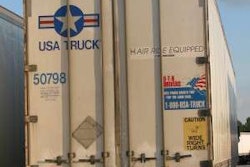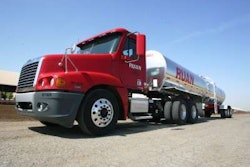 To comply with the Hazardous Material Transportation Safety Act of 2009, carriers that haul flammable liquids such as gasoline would have to retrofit their tanks with wetlines-purging equipment.
To comply with the Hazardous Material Transportation Safety Act of 2009, carriers that haul flammable liquids such as gasoline would have to retrofit their tanks with wetlines-purging equipment.
Requiring tank trucks to purge excess fuel from the external product piping, or wetlines, will not improve the safe transport of flammable liquids and is dangerous to technicians that install the purging technology, American Trucking Associations First Vice Chair Barbara Windsor told the House Subcommittee on Railroads, Pipelines and Hazardous Material during a Nov. 16 field hearing on H.R. 4019, the Hazardous Material Transportation Safety Act of 2009.
“We believe the industry’s safety record demonstrates that a mandate for wetlines-purging equipment is simply not justified,” Windsor said. “Government statistics indicate that the risk of a fatal wetlines incident is approximately 1 in 30 million. … In fact, the odds of being struck by lightning during your lifetime are 6,000 times greater than the odds of being killed in a wetlines incident.”
ATA recommended that Congress require an in-depth study of the issue before imposing a ban on transporting flammable liquids in cargo tank piping.ATA said this report at a minimum should quantify the risks posed by wetlines and analyze the costs and feasibility of eliminating the transportation of flammable materials in wetlines.
To comply with the legislation’s wetlines ban, carriers that haul flammable liquids such as gasoline would have to retrofit their tanks with wetlines purging equipment. Windsor said this technology costs about $8,000 per tank, or $200 million for the entire country’s fleet. Moreover, the current purging technology must be welded onto the existing tank, an activity that inherently is dangerous for the maintenance technician, she said.
“Perhaps the greatest cost associated with a congressional mandate to ban the transportation of flammable liquids in cargo tank external piping will be the additional lives lost as a result of bringing a large number of used cargo tanks into a shop environment for welding operations,” Windsor said.










